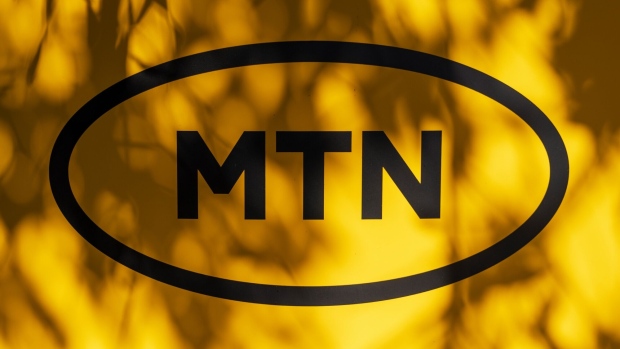Mar 25, 2024
Africa’s Biggest Wireless Carrier MTN Increases Fintech Volumes
, Bloomberg News

(Bloomberg) -- MTN Group Ltd. is seeking a new round of investments in its fintech business, which increased transaction volumes by a third last year, even as Africa’s largest mobile carrier reported its biggest drop in profit in at least 30 years because of the Nigerian naira’s devaluation.
“We are looking at a second round of minority investment into the fintech business,” he said. “We are open to sell up to 30% of the business at the right valuation,” Chief Executive Officer Ralph Mupita told reporters on a Monday call.
The company now has 72.5 million active users of its mobile-money services, known as MoMo, and recently closed a deal with Mastercard Inc. that values the fintech business at $5.2 billion. The partnership will help bolster the payments side of the business, Mupita said in an Bloomberg TV interview, adding that MTN also had “ambitions” on remittance.
Africa’s young, tech-savvy population is increasingly using mobile phones to bridge gaps in services including banking. This has opened a lucrative and fast-growing space in the fintech sector for wireless carriers. MTN’s mobile-money transactions were up 32.2% for the year.
MTN rivals including Airtel Africa Plc, Nairobi-based Safaricom Plc and South Africa’s Vodacom Group Ltd. are all at various stages of transforming from basic voice and text mobile use to digitalization, with a broad aim of separating and monetizing the businesses in the longer term. Airtel Africa is mulling a listing for its mobile-money business.
Read More: Airtel Africa Said to Mull IPO of TPG-Backed Mobile Money Unit
Nigerian Market
Nevertheless, inflation and the devaluation of the local currency in one of its largest markets, Nigeria, resulted in much of MTN’s profit for the year being wiped out.
The South Africa-based company said net income plunged 79% to 4.09 billion rand ($216.6 million) in 2023 from a year earlier. Group service-revenue growth slowed, increasing 6.8% to 210.1 billion rand.
Mupita said he expected continued macro headwinds in the country, and was in talks with regulators to increase tariffs, while also renegotiating certain tower contracts.
MTN also plans to cut expenditure, over the next three years, he said. “Nigeria is a big part of our expense efficiency program. We were looking to take out 7 to 8 billion rand of expenses out of our cost structures on a sustained ongoing basis,” he said on Bloomberg TV.
In the medium term, if market conditions allow, it plans to sell a further 11% of the Nigerian business to local investors, Mupita said.
MTN’s total number of subscribers climbed 2% to 294.8 million. The company declared a final dividend of 3.30 rand a share, less than the 3.37 rand average estimate by analysts on Bloomberg.
The company said it’s also started work on a terrestrial cable to connect 10 African countries. Many nations on the continent are currently struggling with a break in Internet connectivity caused by damage to undersea cables. The structural separation of the fiber business is a key priority for MTN, Mupita said.
Read More: Web Traffic Hops From Angola to Brazil to Skirt Africa Fault
MTN spent 41 billion rand in the past year enhancing network capabilities across its 19 markets. It shares gained 1.4% to trade at 87.21 rand at 4:20 p.m.
(Updates with comment from CEO Bloomberg TV interview in paragraph three)
©2024 Bloomberg L.P.





